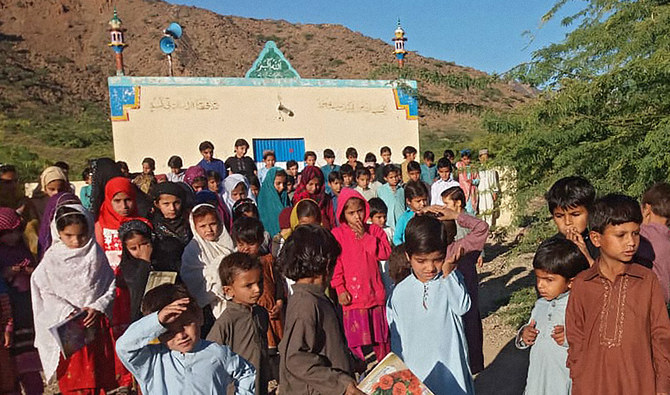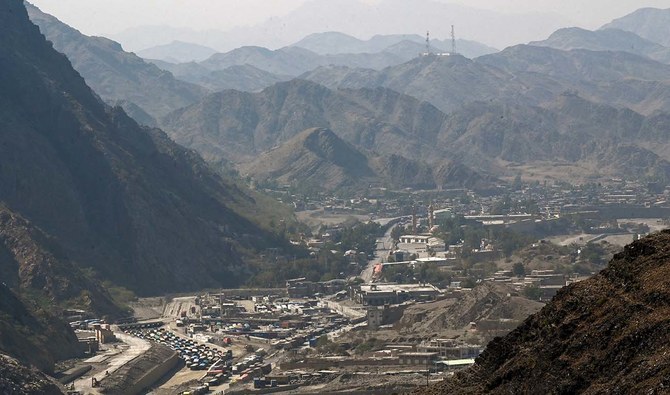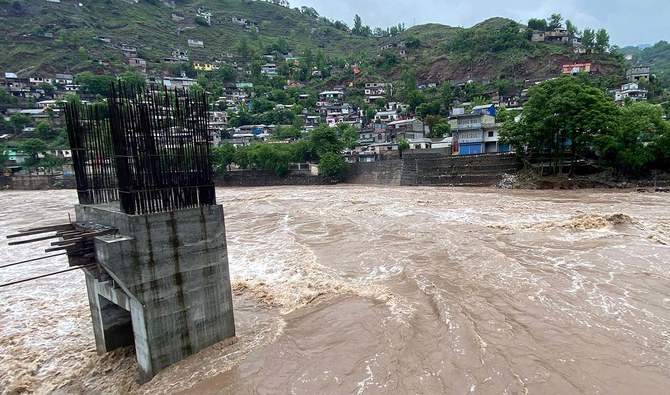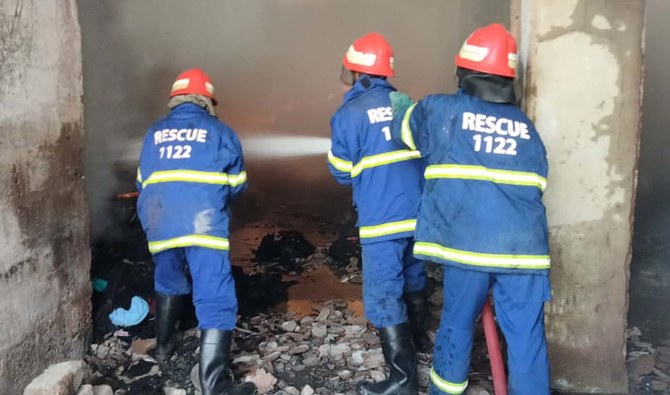TORMANDI, South Waziristan: Hajji Muhammad’s hometown of Tormandi in Pakistan’s South Waziristan tribal district lacks electricity and stable mobile and Internet services and has poor road infrastructure.
The dusty village in Pakistan’s northwestern Khyber Pakhtunkhwa province has also never had a school — a problem that Muhammad found an innovative solution for four years ago, when he set up a makeshift school inside a one-room mosque. The facility currently schools 120 children, including 40 girls, who study in two three-hour-long shifts. Muhammad is the only teacher and hopes the district administration and rich residents of the district will help him upgrade the facility.
“It was very troubling for me to see children just loitering around, spending time climbing trees or taking cattle for grazing to the hillside,” Muhammad told Arab News, describing the state of affairs before he launched the mosque-school.
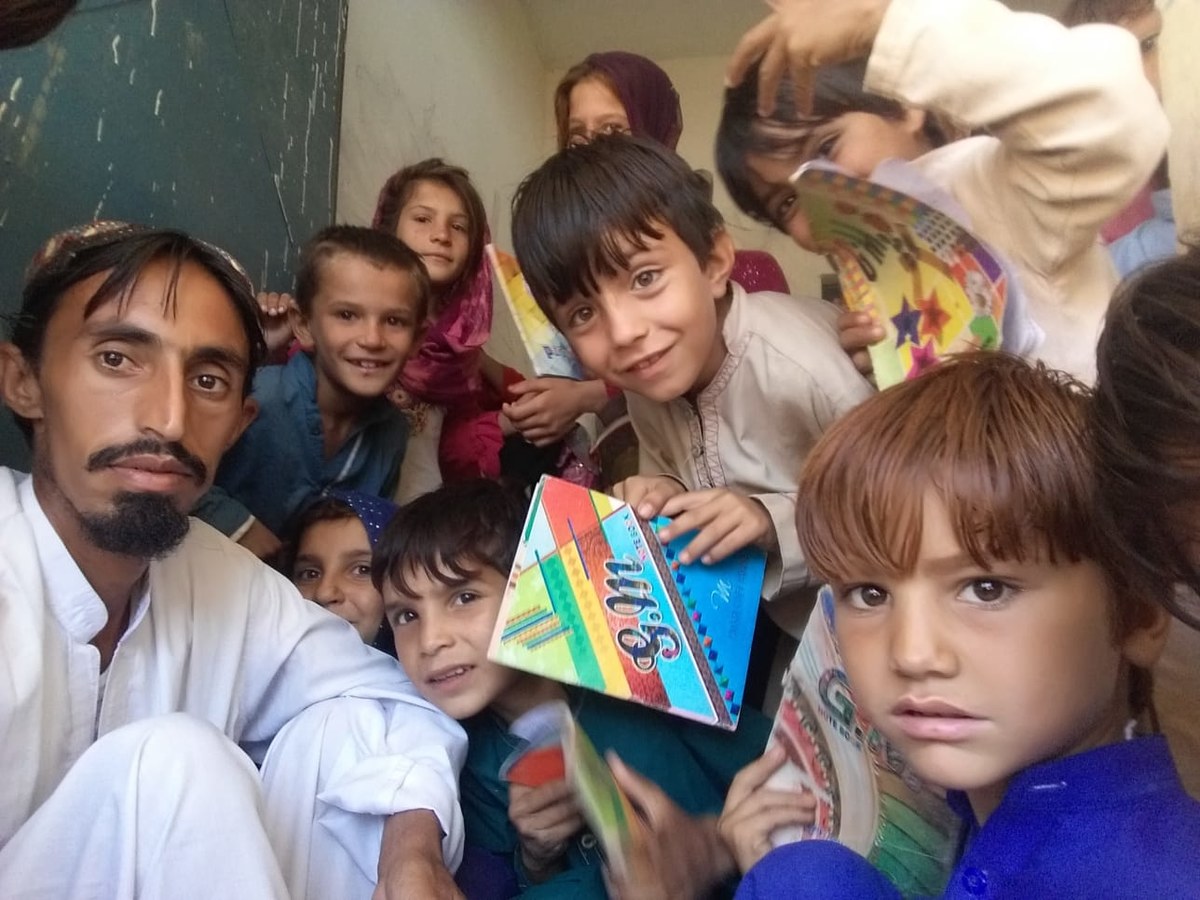
Haji Muhammad, a teacher who turned his village mosque into a school, can be seen with his students in this undated photo in Tormandi, South Waziristan. (Photo courtesy: Haji Muhammad)
The 31-year-old, who didn’t receive a formal education himself, moved with his family to Karachi, Pakistan’s financial hub of Pakistan, in 2008 after army offensives aimed at wiping out militants based in the region forced thousands of people out of South Waziristan.
During his stay in Karachi, Muhammad studied privately and completed his matriculation in 2014, after which he started teaching primary school children as well as offering home tuitions to students in Karachi. In 2016, he moved back to his hometown and started tutoring two students at his tiny village home. But as the number of students multiplied, Muhammad decided to move his classes to the village mosque where he has been teaching Urdu, English and Mathematics to grades 1 to 4 since 2017.
Pakistan’s northwestern tribal region — comprising seven districts including the restive South Waziristan district, and six towns — was collectively called the Federally Administered Tribal Areas (FATA) and governed by colonial era tribal laws for over 150 years.
In 2009, the region was overrun by Taliban militants as war raged in neighboring Afghanistan, pushing the Pakistani military to launch armed operations that triggered a mass exodus of locals and forced thousands out of schools.
Educational institutes were either destroyed or taken over by militants in the early 2000s, and the literacy rate plunged to 10.5 percent for girls and 36.66 percent for boys in the region, according to 2014 data from the then FATA Secretariat.
In 2018, the region was merged with the Khyber Pakhtunkhwa province and education came under the control of the provincial government. But the process of reform has been a slow one.
Around 58 percent of children aged between four and 14 years remained out of schools in the region, according to 2017-18 data from the KP elementary and secondary education department.
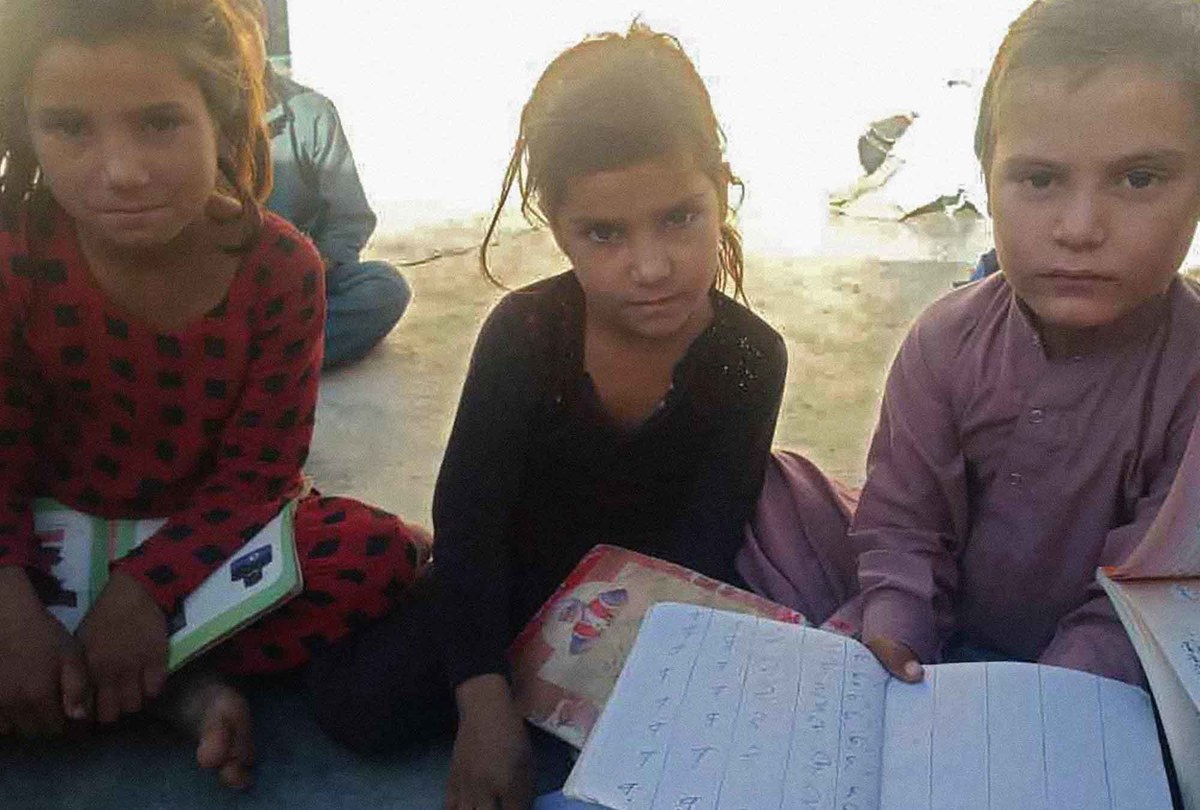
In this undated photo, children in South Waziristan tribal district, Pakistan. (Photo credit: Haji Muhammad)
More recent data was unavailable.
Hafiz Ibrahim, a senior official at the KP Education Directorate, told Arab News a survey to assess the state of education, including the literacy rate and missing facilities at educational institutions, was currently being carried out by his department throughout the tribal areas. The survey will be made public within a month, he added.
“Currently, all facts and figures into erstwhile FATA’s literacy are baseless. We’ve initiated a seamless survey to know about the ground realities into the state of education there,” Ibrahim said. “I’ll be in a position to tell you about male and female literacy rate once the survey is completed.”
In August last year, the provincial government also kicked off a province-wide drive to enroll 800,000 out-of-school children and allocated Rs3 billion for the purpose.
Qadeem Marwat, the South Waziristan district education officer (DEO), told Arab News the seasonal migration of locals, coupled with a precarious security situation, caused fluctuation in the number of students enrolled at educational institutions in the district.
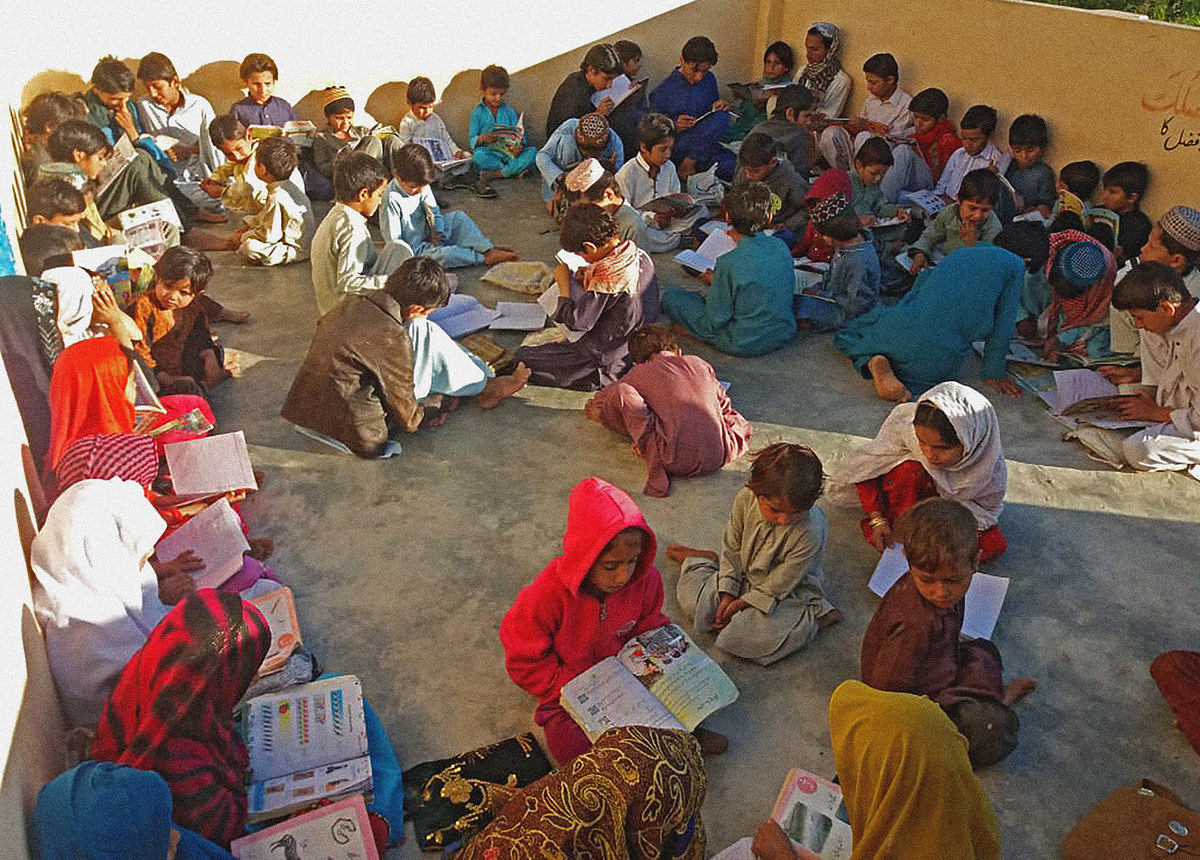
Children in this undated photo attend a class inside a mosque turned into a school in South Waziristan tribal district, Pakistan. (Photo credit: Haji Muhammad)
“For example, last year we had 85,000 plus enrolled students but this year that number decreased to 57,000 students, including 25,000 girls,” Marwat said. “The situation is challenging, but ... we are working to convince parents to enroll their children with us.”
Ijaz Akhtar, a senior district administration official, said the local government, in collaboration with the education department, would approach Muhammad and extend all possible support to him in his mission.
“I’ll coordinate with the education department,” he said, “to visit the area, meet the children and elders to identify their problems.”
For now, Muhammad says he has knocked at every door in his village to request people to help him build a school — but with no luck. Some of the younger students he has taught were promoted to higher grades and had to move to other parts of the province and country to continue their education.
This week a local organization donated stationery to the school and Muhammad said the district administration had pledged to give him furniture after completing paperwork.
“I appeal to the government and well-off people,” he said, “to extend a helping hand and provide some monthly stipend as I have parents and two children to feed.”



